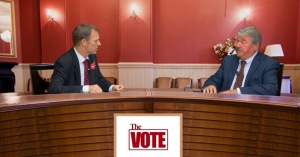Decisions taken tomorrow (Wednesday 14 January) will mean higher rents and £100 million spending on housing in Brighton and Hove in the coming year.
The new rent levels and the housing budget are among a series of crucial decisions, all on related subjects, being taken by ten councillors.
Rents will rise by about 2.2 per cent for almost 12,000 council tenants and a budget of £100 million for the coming year will almost certainly be approved.
The Brighton and Hove City Council budget for housing – known as the Housing Revenue Account – is ringfenced. It is legally separate from the rest of the council’s income and outgoings.
The basic HRA for the financial year starting in April totals £59 million. The capital budget, for projects like new homes or the more costly improvements to existing ones, is more than £41 million.

One of the most visible results will be 150 new council homes, mostly flats. They will hardly make a dent in a waiting list that numbers in the thousands. But all four parties on the council – Greens, Conservatives, Labour and UKIP – appear to support the principle of the council building homes again.
Perhaps as important, subject to agreement tomorrow, more than 200 homes in sheltered housing blocks will be modernised.
The first step involves creating flats from some of the sheltered housing built in the 1960s and 1970s. It’s proving hard to let even though demand is rising.
The proposed conversion work should make the empty flats more attractive to prospective tenants, easing pressure on the waiting list.
The next steps in the “sheltered housing stock review” will be outlined in a few months’ time. The aim though is to find ways to help people live healthy and independent lives in their own homes for as long as possible.
The council owns and manages about 850 sheltered flats and has almost 800 people on the waiting list.
A report prepared for the council’s Housing Committee tomorrow said: “The council’s supply of affordable sheltered housing is supplemented by 908 sheltered flats managed by 14 registered providers (housing associations).”
With people living longer, the problem doesn’t look likely to go away. The report also said: “At the time of the 2011 census there were 35,692 people aged 65 and over living in the city, representing 13 per cent of the total population.”
Nearly 6,000 of those people were at least 85 years old and almost 2,300 were older than 90. Official projections suggest that there will be almost 3,400 people aged over 90 living in Brighton and Hove just six years from now.
Among the problems in existing sheltered housing schemes is that so many flats have the bed in the lounge. But placing single vulnerable adults with complex needs in sheltered blocks that were meant for pensioners has compounded those problems.
The Housing Committee report said: “Negative outcomes include safeguarding risks and increasing isolation, which both have a detrimental impact on the quality of life of residents and (are) also costly to manage.”
At the end of last week a council scrutiny panel started looking into problems affecting tenants in the private rented sector.
Campaigners locally have flagged up a number of issues. They include the cost of renting, the quality of rented properties and the way that owners and managing agents have not always responded well when repairs and maintenance are required.
The scrutiny panel is due to meet again at Hove Town Hall in ten days’ time (Friday 23 January).
Tomorrow the Housing Committee is expected to agree that a consultation should start on licensing more private rented properties.
The law already requires the council to license larger HMOs – or houses in multiple occupation. In addition it licenses smaller HMOs in the five wards with the most students.
The scheme could be extended to seven more wards, including four in Hove. The existing register of licensed HMOs could also be made more widely available by being published on the council website.
The Housing Committee will also be asked to agree a crackdown on parking in places like Ingram Crescent, Hove. The move is intended to make life easier for tenants and discourage other drivers from trying to dodge having to pay for parking on the street.
Councillors will almost certainly approve – and the tougher approach will make a modest contribution to the council’s coffers too.
The meeting tomorrow starts at 4pm at Hove Town Hall and is open to the public. To see the agenda and related documents, click here.








